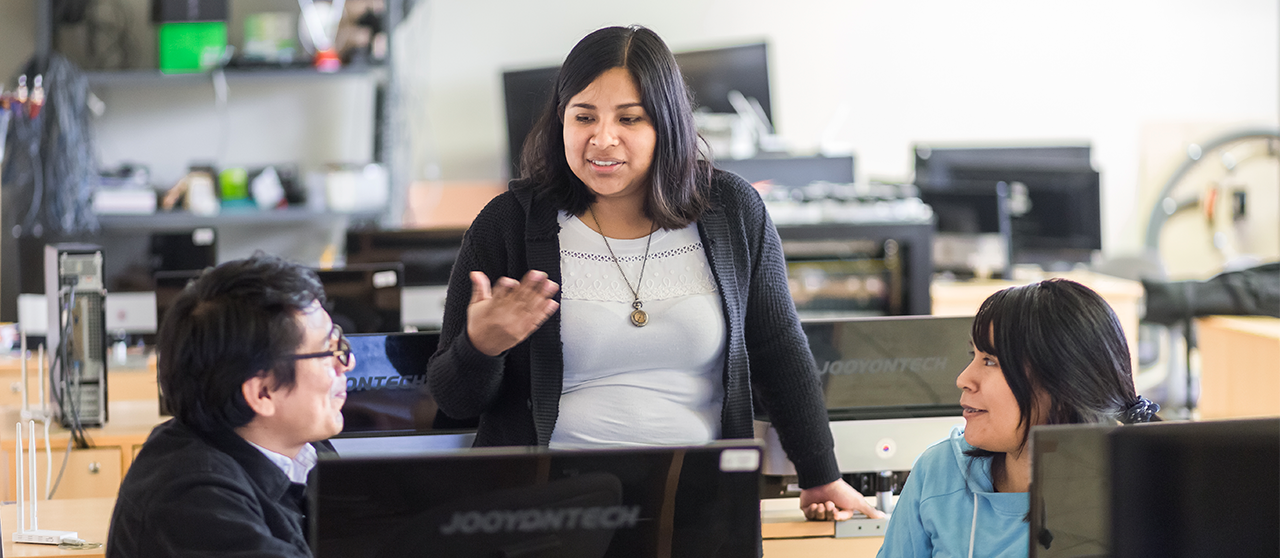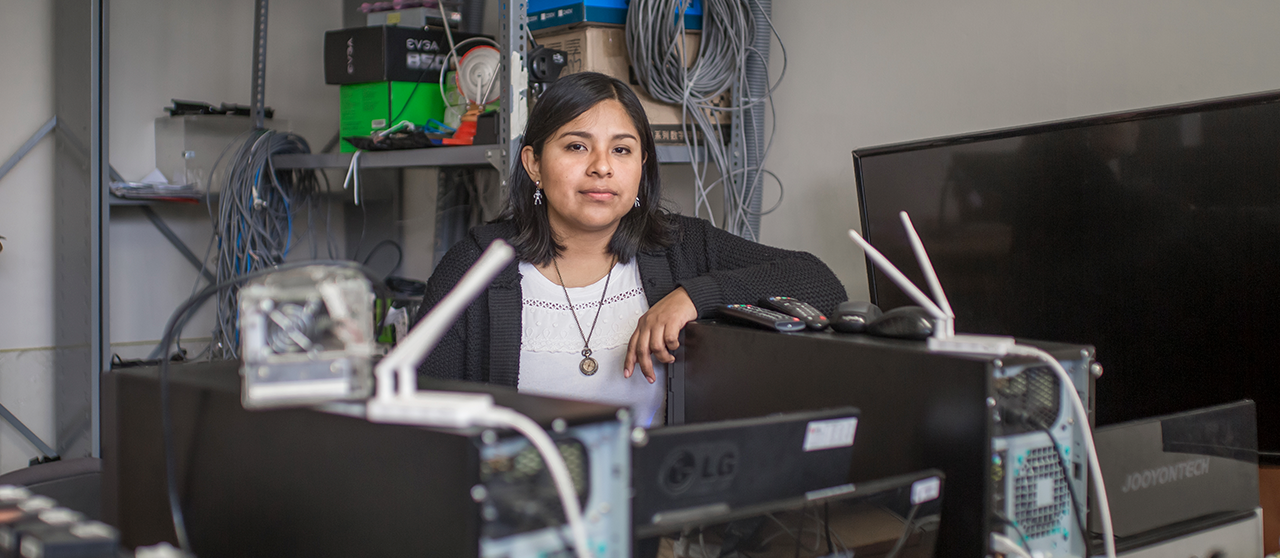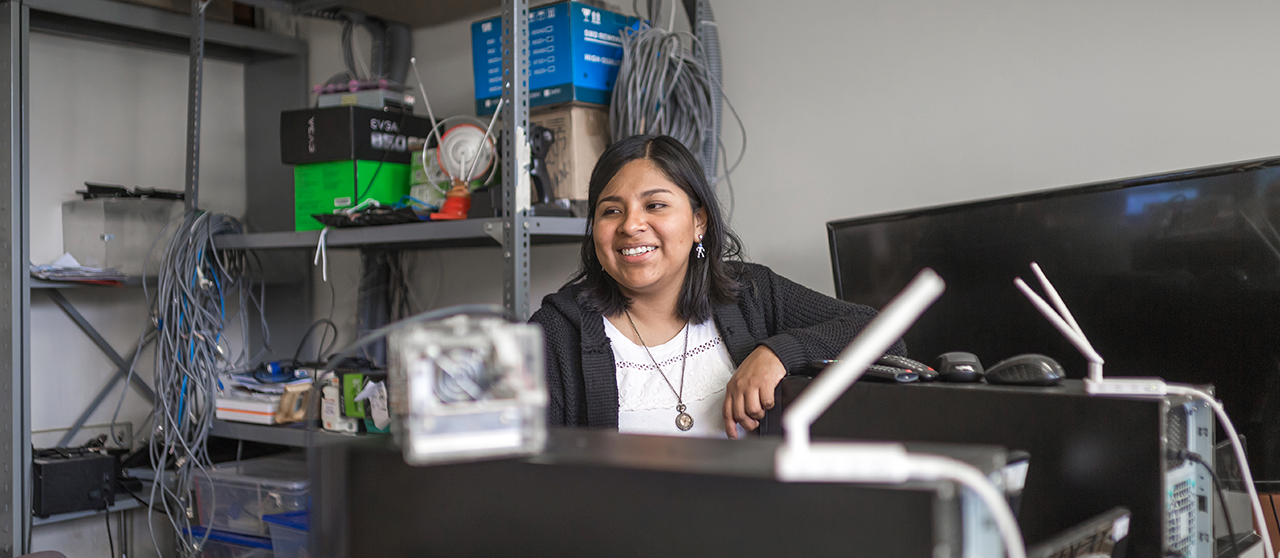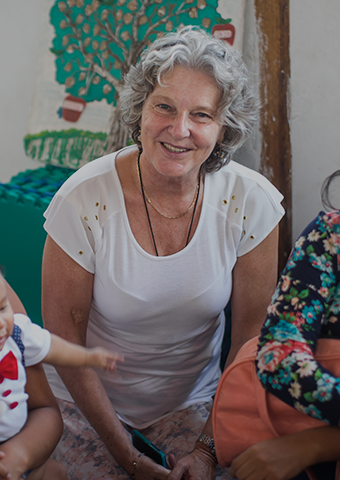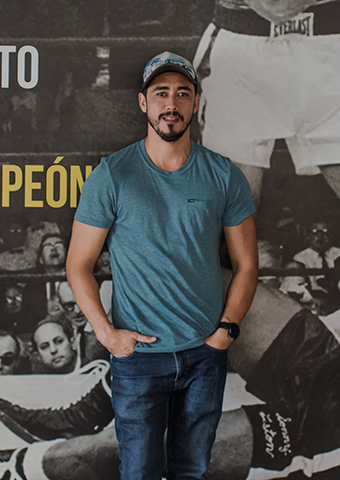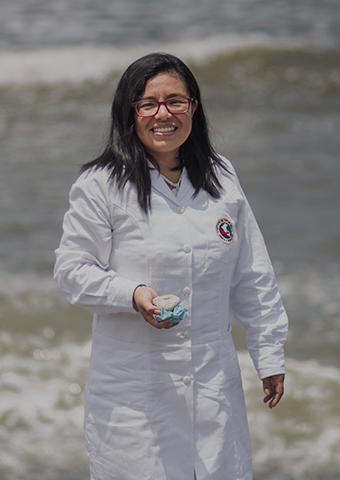“The aerospace project was already being developed in our heads, although it was only a dream back then”
So, you are going to test them there to know how much they can last here.
And also to know if they are consumable in space.
Is it to create an ecosystem similar to that of earth?
That is too extreme. They could be grown inside a dome, for example. They would survive because they have pigments that protect their DNA.
You are the daughter of two businesspeople. One is in the food sector and the other one in clothing. What do you have in common with them?
They are dreamers. We have been together in every phase of their businesses, and when problems arose, they taught us we had to forge ahead… be always the best.
What do they think about what you do?
My mom says, “Honey, I don’t know what you are thinking of….” (she laughs); and my dad is like another group member, as he dreams with every step we make. I tell him everything we do.
Do you want to become an astronaut?
No… I mean, it is my dream, but I am realistic and I know I can’t. I would have had to prepare since I was a child. Now I’m not prepared for that.
So, what are you more likely to do next?
Participate in space missions ―as a chief, if possible (she laughs). I would like to integrate many projects, but first I have to finish my master studies in Molecular Biology. Then I want to enroll in a PhD programme abroad. After all of this, I want to work in an agency in charge of important projects in space like NASA.
You studied in a state school, which proves that regardless of where we come from, we can fulfil our dreams.
Now more than ever thanks to the Internet.
Of all the pieces of advice you received from NASA after your presentation, which was the most useful?
One recommendation was the most striking. I believed that the more complex my mini-laboratory was the better it would be. However, one of them told me that I had to be careful with that, as if I added more elements, it would be scientifically wider and more results could be obtained, but at the same time, it could cause failures in the sending of data. In other words, if it were more sophisticated, it might not work. So, I started thinking about what to eliminate or what to include...
“My dad is like another group member, as he dreams with every step we make”
When you started the project, the group had four members. Now that you have founded the Scientific Society of Astrobiology in Peru, how many members are you?
The executors are ten; so that plus the advisers, we are twenty.
Does any of your advisers belong to NASA?
Yes, Dr. Julio Valdivia is affiliated with NASA and is our adviser for the identification of cyanobacteria at DNA level. We are also supported by Saúl Pérez, who worked with Gustaf Arrhenius ―grandchild of the great scientist and chemist August Arrhenius, creator of the Panspermia theory― who has a prebiotic chemistry laboratory in USA; and Dr. Haydée Montoya, specialist in algae and micro-algae, with whom we study the variety of cyanobacteria.
You have accomplished so much in a country that barely supports science development.
We find opportunities. We do not think about that. We focus on the means to accomplish our goals and apply to competitions. That is how we raise funds that allow us to continue our research.
Is the mini-laboratory ready?
The second prototype is ready, although we believe it will never be completely ready until it is tested (in the moon).
In March 2019, the project will be sent to the moon from India. Will you be there to see it?
At least some of our members will. We will be in Bangalore.
What do you feel?
I feel scared, happy… it’s a challenge! Nothing is certain in a space project. It can be a success or the ship can explode… who knows what is going to happen! But I’m happy because I have found a team, a research group, with which we are already planning more projects. That is very good, as they are amazing people who do not care about problems or politics. They only say, “Let’s keep working!"


